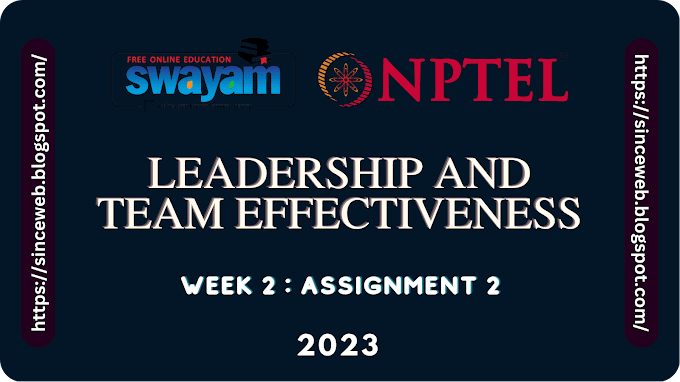NPTEL Data Analytics with Python Week 0 | Assignment 0 Answers
Brief overview of NPTEL Data Analytics with Python course
The NPTEL Data Analytics with Python course is a free online course offered by the National Programme on Technology Enhanced Learning (NPTEL), a joint initiative of the Indian Institutes of Technology (IITs) and the Indian Institute of Science (IISc). The course is designed to provide a comprehensive introduction to the field of data analytics and its applications using the Python programming language. The course covers topics such as data exploration, visualization, and statistical analysis, as well as machine learning and big data. The course is intended for students, professionals, and anyone interested in learning about data analytics and its applications.
COURSE LEVEL
Undergraduate/Postgraduate
Assignment No. Answers
Data Analytics with Python Assignment 3 Click Here
Data Analytics with Python Assignment 4 Click Here
Data Analytics with Python Assignment 5 Click Here
Data Analytics with Python Assignment 6 Click Here
Data Analytics with Python Assignment 7 Click Here
NPTEL Data Analytics with Python Week 0 Assignment 0 Answers 2023
- Object- oriented
- Concise and simple
- Both of the above
- None of the above
- True
- False
- df.loc[[2,3,5]]
- df.loc[[3,4,5]]
- df.iloc[3,4,6]
- None of the above
- Continuous data
- Categorical data
- Both (a) & (b)
- None of the above
COURSE LAYOUT
Week 2 : Introduction to probability
Week 3 : Sampling and sampling distributions
Week 4 : Hypothesis testing
Week 5 : Two sample testing and introduction to ANOVA
Week 6 : Two way ANOVA and linear regression
Week 7 : Linear regression and multiple regression
Week 8 : Concepts of MLE and Logistic regression
Week 9 : ROC and Regression Analysis Model Building
Week 10 : c2 Test and introduction to cluster analysis
Week 11 : Clustering analysis
CRITERIA TO GET A CERTIFICATE
Disclaimer:
The answers provided in this blogpost are for reference only and should not be used as a substitute for your own research and understanding of the subject matter. The answers have been researched and compiled to the best of our knowledge, but we cannot guarantee their accuracy or completeness. We strongly advise that you use this information as a starting point for your own research and not as the sole basis for your work. Please use your own discretion and always consult your instructor or professor for guidance.







.png)
